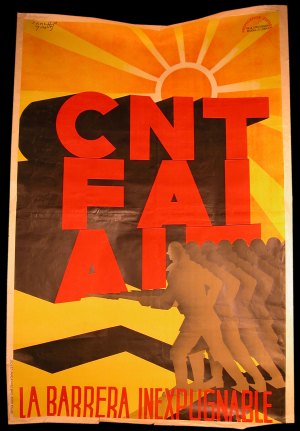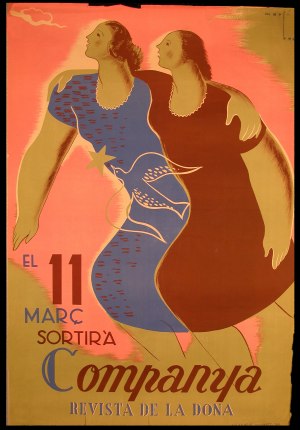

Written: 1 July 1931.
Source: The Militant, Vol. IV No. 16, 25 July 1931, pp. 1 & 6.
Transcription/HTML Mark-up: Einde O’Callaghan for the Trotsky Internet Archive.
Copyleft: Leon Trotsky Internet Archive (www.marxists.org) 2012. Permission is granted to copy and/or distribute this document under the terms of the Creative Commons Attribution-ShareAlike 2.0.
1. I have before me a Turkish paper (in French) of July 1, containing the first news about the Spanish elections. Really, everything is happening up to now in a strictly “foreseen” order. The slide to the Left has gone on with a particular regularity. Let us hope that our Spanish comrades will analyze the results of the elections very carefully, on the basis of materials. We must find out how the workers voted, especially the anarcho-syndicalists. In certain regions, the answer should flow clearly from the election statistics. It is extremely important, of course, to know how the peasants voted in the various provinces. At the same time, all the “agrarian programs” which were presented by the various parties in all the corners of the country must be gathered together. All this is an urgent and a very important work.
2. As was to be expected, the socialists won a great victory. This is the crux of the parliamentary situation. The socialist leaders consider themselves happy over the fact that they have not the majority in the Cortes and that their coalition with the bourgeoisie is thus justified by parliamentary statistics. The socialists do not want to take power because they are afraid, and not without cause, of the socialist government becoming a stage towards the dictatorship of the proletariat. It follows from the speech of Prieto that the socialists have decided to support the coalition so long as the proletariat can be restrained, in order later, when the pressure of the workers becomes too strong, to pass over into the opposition under some radical pretext or other, and to leave it to the bourgeoisie to discipline and to crush the workers. In other words, we have before us a variant of Ebert and of Tseretelli. Let us remember that Ebert’s line succeeded while Tseretelli’s failed and that in both cases the strength of the Communist party and its policy played a decisive role.
3. We must immediately denounce the plan of the socialists (this political game of falling back), confounding them in every question. This of course holds true above all for the Spanish Left Opposition. But this is not enough. There must be a clear political slogan which corresponds to the character of the present stage of the Spanish revolution. The results of the elections make this slogan absolutely clear: the workers must break up the coalition with the bourgeoisie and compel the socialists to take power. The peasants must help the workers, if they want to have the land.
4. The socialists will say that they cannot give up the coalition because they have not the majority in the Cortes. Our conclusion must be: demand the election of a genuinely democratic Cortes on the basis of a genuinely universal and direct suffrage for men and women from the age of 18. In other words: to the non-democratic and tricky Cortes we must, at the present stage, oppose the genuinely democratic and honestly elected popular Cortes.
5. Had the Communists tried today to turn their backs upon the Cortes setting up against it the slogan of Soviets and of the dictatorship of the proletariat, they would only have showed that they should not be taken seriously. There is not a single Communist in the Cortes (according to the Turkish press). It is obvious that the revolutionary wing is much stronger in action, in the struggle, than in parliamentary representation. Nevertheless, there exists a certain relationship between the strength of a revolutionary party and its parliamentary representation. The weakness of Spanish Communism has revealed itself completely. Under these conditions, to speak of the overthrow of bourgeois parliamentarism by the dictatorship of the proletariat would mean quite simply to play the role of simpletons and prattlers. The task is to become stronger on the basis of the parliamentary stage of the revolution and to assemble the masses around oneself. It, is only in this way that parliamentarism can be vanquished. But it is precisely for this that it is indispensable at present to develop a violent agitation under the slogans of the most, decisive and the most extreme democracy.
6. What are the criteria for putting forward these slogans? On the one hand one must have in mind the general direction of the revolutionary development which determines our strategic line; on the other hand one must rake into account the state of mind of the masses. The Communist who does not reckon with this last factor risks breaking his neck. Let us reflect a little on the question of knowing how the Spanish workers, the masses, look upon the present situation. Their leaders, the socialists, are in power. This increases the demands and the intransigence of the workers. Every striking worker will believe that he need not only have no fear of the government but, on the contrary, that help may be expected from it. The Communists must guide the thought of the workers precisely in this sense: “Demand everything from the government, since your leaders are to be found in this government.” The socialists will reply to the workers’ delegations that they have not the majority. The reply is clear: if the genuinely democratic right of suffrage is obtained, and if the coalition with the bourgeoisie is broken, the majority will be guaranteed. But that is just what the socialists do not want. Their position puts them into contradiction with the bold democratic slogans. If we simply oppose the dictatorship of the proletariat to the Cortes we will succeed in grouping the workers around the socialists, because both of them will say: The Communists want to command us. While by democratic slogans and by the rupture between the socialists and the bourgeoisie, we drive a wedge between the workers and the socialists and we thus prepare the next stage of the revolution.
7. All the considerations mentioned above would remain a dead letter were we to confine ourselves to the democratic slogans in the parliamentary sense. There can be no question of this. The Communists participate in every strike, in every manifestation of protest, in every demonstration, they arouse ever more numerous strata. The Communists are with the masses and at the head of the masses in every fight. On the basis of these lights, the Communists put forward the slogan of Soviets and build up these Soviets on the first occasion as organizations of the proletarian united front. In the present stage, the Soviets can be nothing but this. But if they arise as fighting organizations of the proletarian united front, they will inevitably become, under the leadership of the Communists, organs of the insurrection and then also the organs of power.
8. In developing boldly the agrarian program, one must in no case forget the independent role of the agricultural workers. This is the most important lever of the proletarian revolution in the country. With the peasants, the workers make an alliance, while the agricultural workers are a part of the proletariat itself. This profound difference must never be forgotten.
9. I learn from La Verité that the Stalinists accuse the whole Left Opposition as well as me personally of being against the immediate confiscation of landed property. Truly, it is hard to foresee in what direction the demagogic bureaucrats will turn. What does the “immediate” confiscation of the land signify? By whom? By what organizations? It is true that the incomparable Peri affirmed back in April that the Spanish peasants were building up Soviets and that the workers were following the Communists in masses. Naturally, we agree that the Soviets (or unions, or committees) should immediately take the land of the large landlords into their hands. Only, the peasants must be aroused. And for that, the workers must be torn away from the influence of the socialists. One does not go without the other. Would the Stalinists like to say that we favor landed property? But even in calumny there must be logic. How does the defense of landed property flow from the permanent revolution? Let them endeavor to show us.
As for us, we will recall to them that when the Stalinists conducted in China the policy of the four classes the Political Bureau, under the leadership of Stalin sent telegrams to the Central Committee of the Chinese Communist Party demanding the curbing of the peasant movement in order not to repulse the “revolutionary” generals. Stalin and Molotov introduced a small restriction into the agrarian program: the confiscation of the lands of the big landlords except for those belonging to the officers. But since all the landowners and the sons and nephews of the landowners entered into the army of Chiang Kai-Shek, the union of the “revolutionary” officers became a guarantee for the property of the landowners. This shameful chapter in the history of the Stalinist leadership cannot be expunged. The Opposition found a copy of the telegram in the minutes of the Political Bureau, it denounced and doomed to shame this betrayal of the agrarian revolution. Now these gentlemen seek to attribute to us in Spain the crimes which they committed in China. They will not succeed: now the Opposition has its section in almost every country which will not permit them to spread lies and confusion with impunity. The Left Opposition will clarify all the fundamental disputed questions in the light of the Spanish revolution and it will take a gigantic step forward. Not for nothing is the revolution the locomotive of history.
LEON TROTSKY
Kadikoy, July 1, 1931
  Return to Trotsky’s
|

Last updated on: 13.1.2013